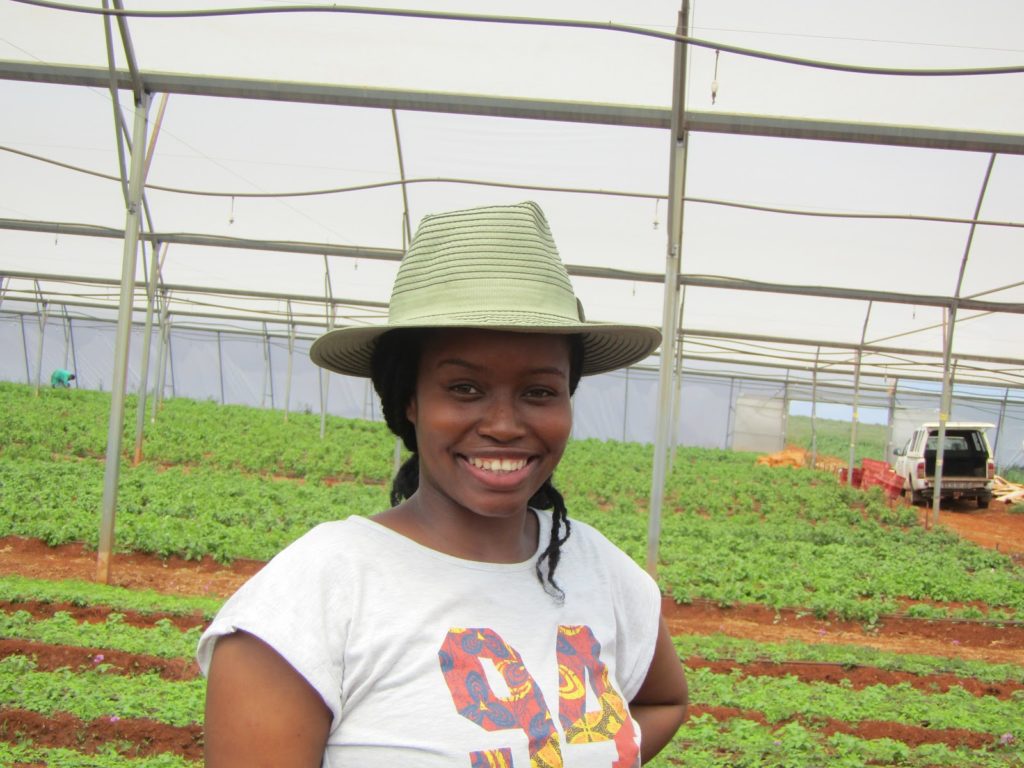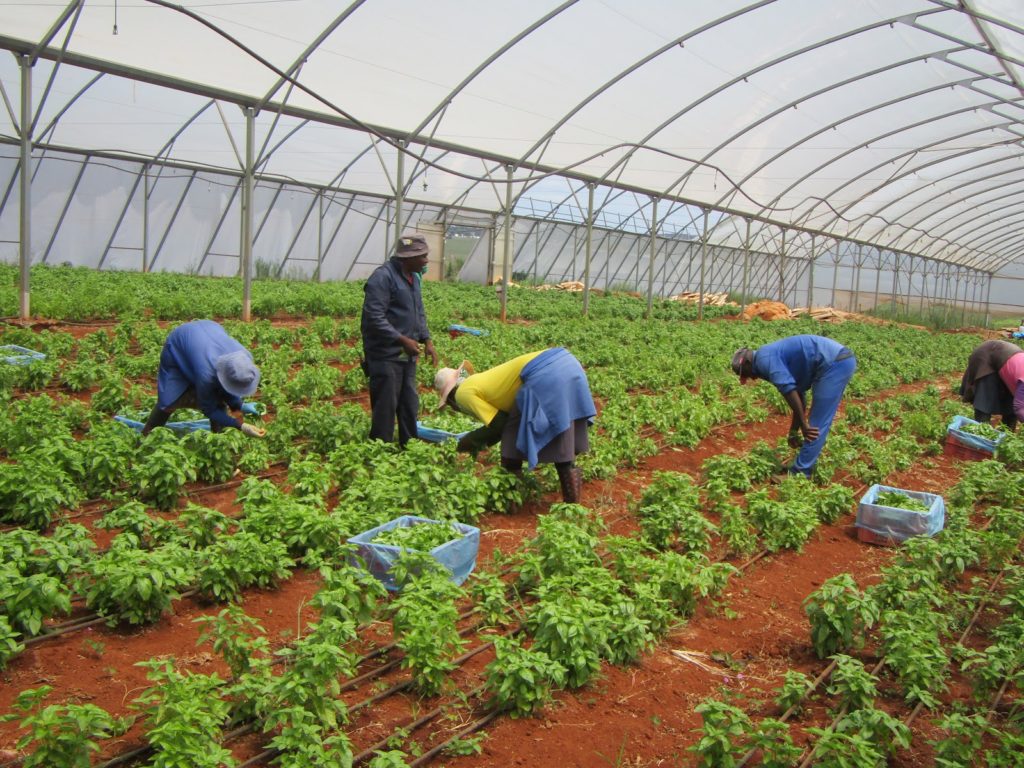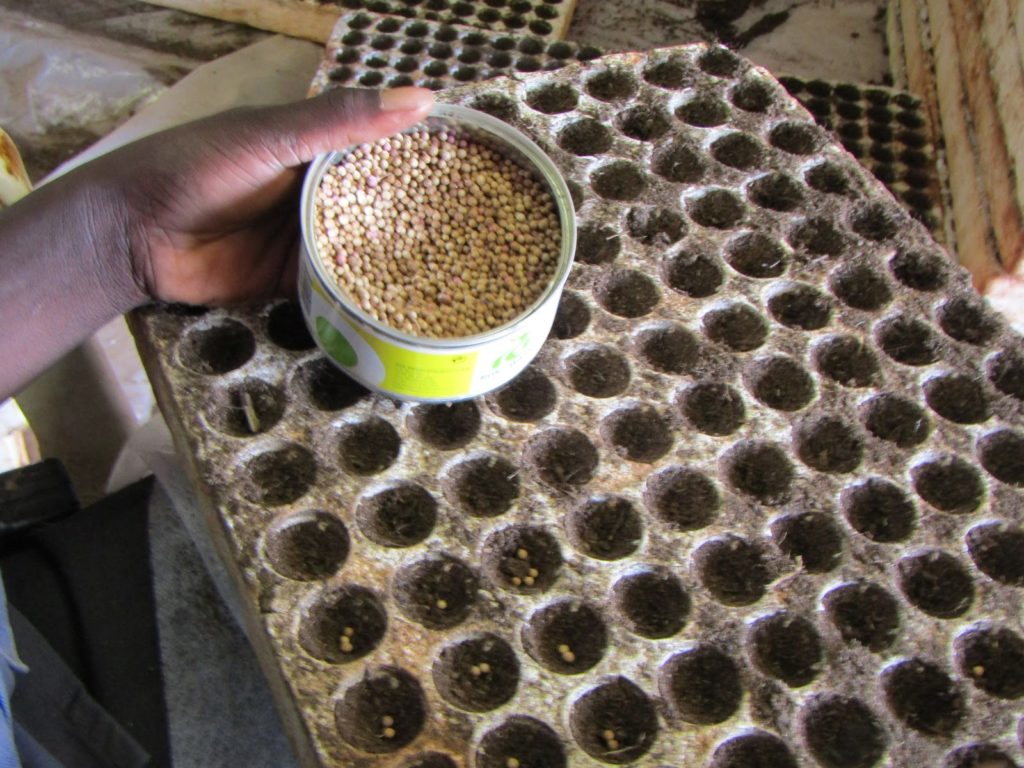
Lerato Botha is a 25 year old, second generation farmer who has set to build an enduring career in agriculture. Growing up on a farm, she remembers farm work being a big part of her play time, and could very rarely distinguish between the two. Farming has proven to be a constant love in Lerato’s life. It was while pursuing tertiary education – Lerato was studying psychology with the hope of getting into law – that she found herself taking stock and evaluating her true passion. Lerato later switched her course from psychology to agronomy, knowing well the tireless work the farm required.
Tila’s Herbs Farm, situated in the West Rand, in Gauteng, South Africa, is a 22 hectare plot with 17 cultivated hectares and an onsite pack house. The farm was founded by Lerato’s father, Mr Jimmy Botha, 15 years ago.
The growth trajectory of the farm is one that took place right under my nose and this serves as the great motivator for me” – Jimmy Botha

Lerato looks at her father as a mentor in translating her theoretical knowledge into practical applications that can grow the farm. In its inception, Tila’s Herbs focused on two cash crops – basil and rocket – and perfected the discipline it takes to yield A-grade harvest. It later expanded into other crops such as curry, coriander, lettuce, beets etc. In retrospect, conversations around legacy played a key role in attracting Lerato to agronomy. After seeing how the business had funded her academic ambitions throughout the years, she started thinking about what would happen to the business should her father pass on.
Occupying the front row seat to the quality of decisions that had triggered our growth over the years puts me in the best position to spearhead our future growth” – Lorato Botha
No business can thrive without overcoming a few challenges, and for Tila’s Herbs one of those challenges was access to formal markets. Attaining the right certification, for both Local and Global Good Agricultural Practices (GAP), opened the door for the farm to supply formal retailers.
In 2019 Lerato registered Tila’s Herbs on our European Union funded Farmer2Market programme. This programme seeks to train smallholders on Local and Global GAP in order to link them to formal markets. Many smallholder farmers find themselves confined to trading with informal traders due to lack of certification, which serves as the key to accessing formal markets.

The key factors in GAP are those that matter to high end value chains such as traceability of produce, operational hygiene, fertilizer and chemical application, water management and record keeping. With Lerato already qualifying in the aforementioned, it became easier for the programme to link Tila’s Herbs with export markets through a contract with Yukon. Through this contract Tila’s Herbs will be supplying Yukon with beets, an opportunity Lerato is enthused about as it grants the farm access to a diversified market.
We are excited about reaching wider markets such as the one we have through the contract with Yukon. However, our primary focus remains feeding South Africa,” said Lerato.
It is with this sentiment in mind that Farmer2Market Project Manager, Solidaridad, and implementing partners ICCO and LIMA have partnered with HelloChoice, a digital trading platform for fresh produce trade that connects farmers directly to buyers in South Africa. Through an open and transparent market and price discovery mechanism HelloChoice offers buyers and sellers the opportunity to be a part of a community of people that are interested in true value and streamlined profitable transactions for both parties. Such partnerships prove that when market stakeholders partner with clear objectives, they can make markets more inclusive.
